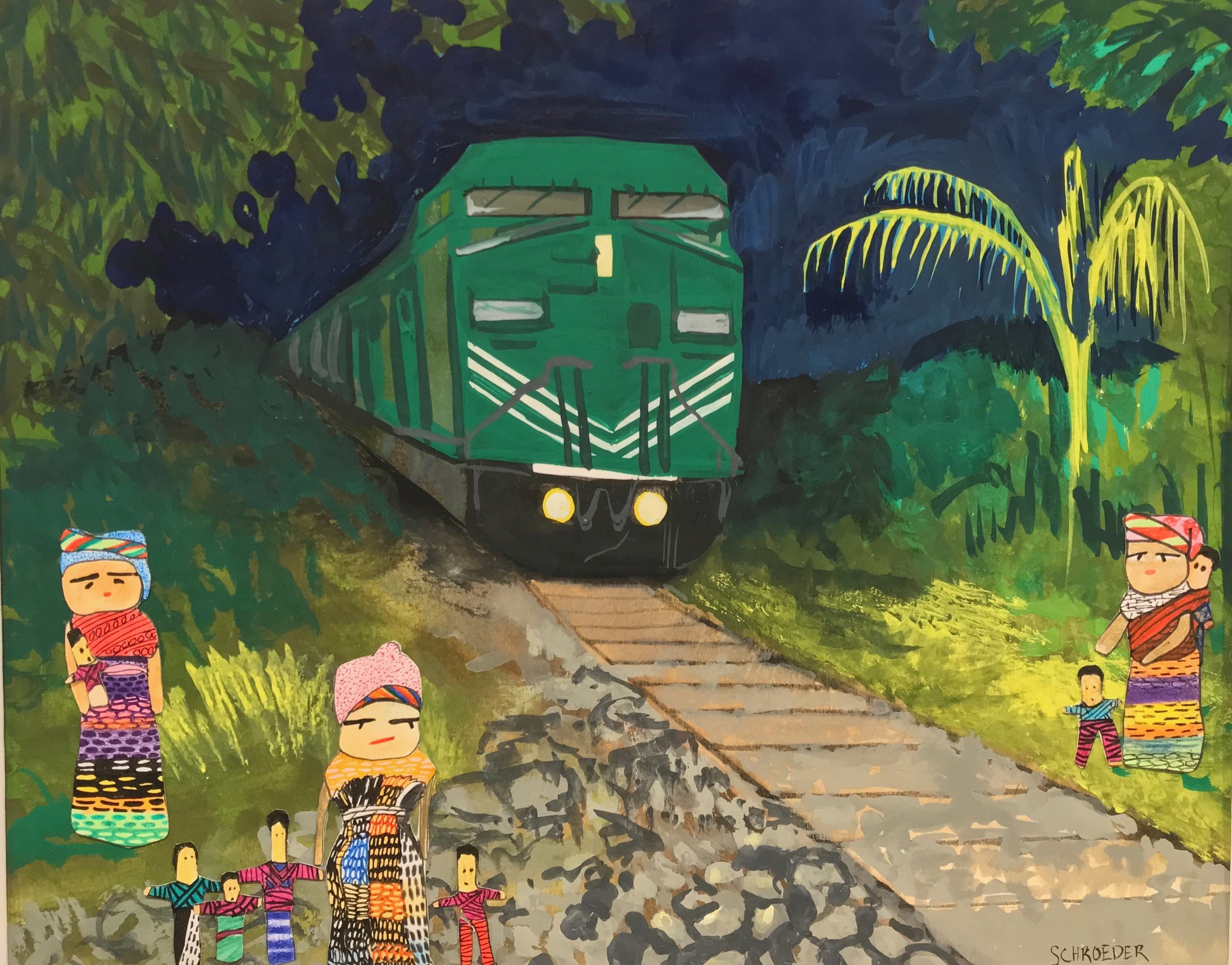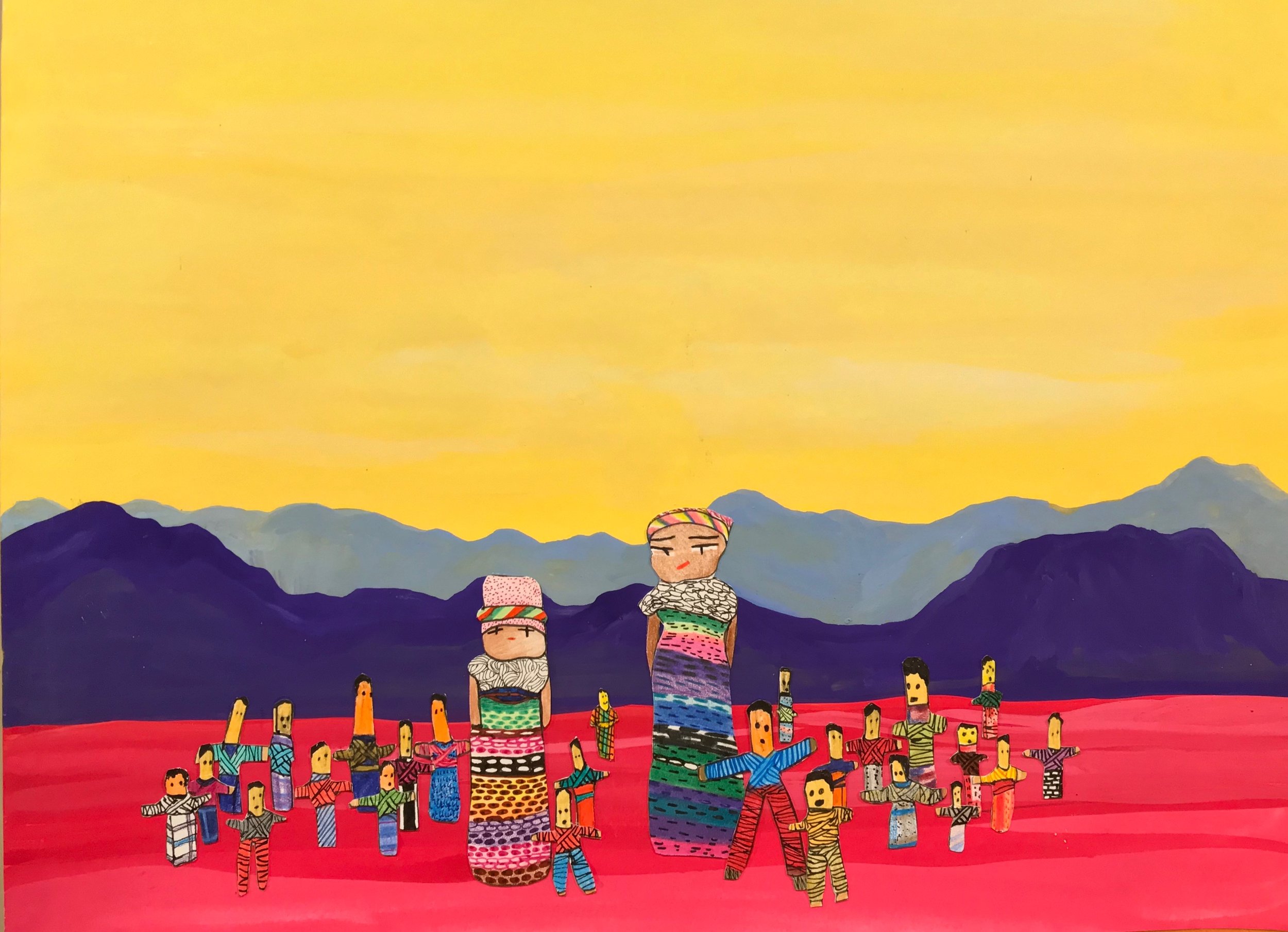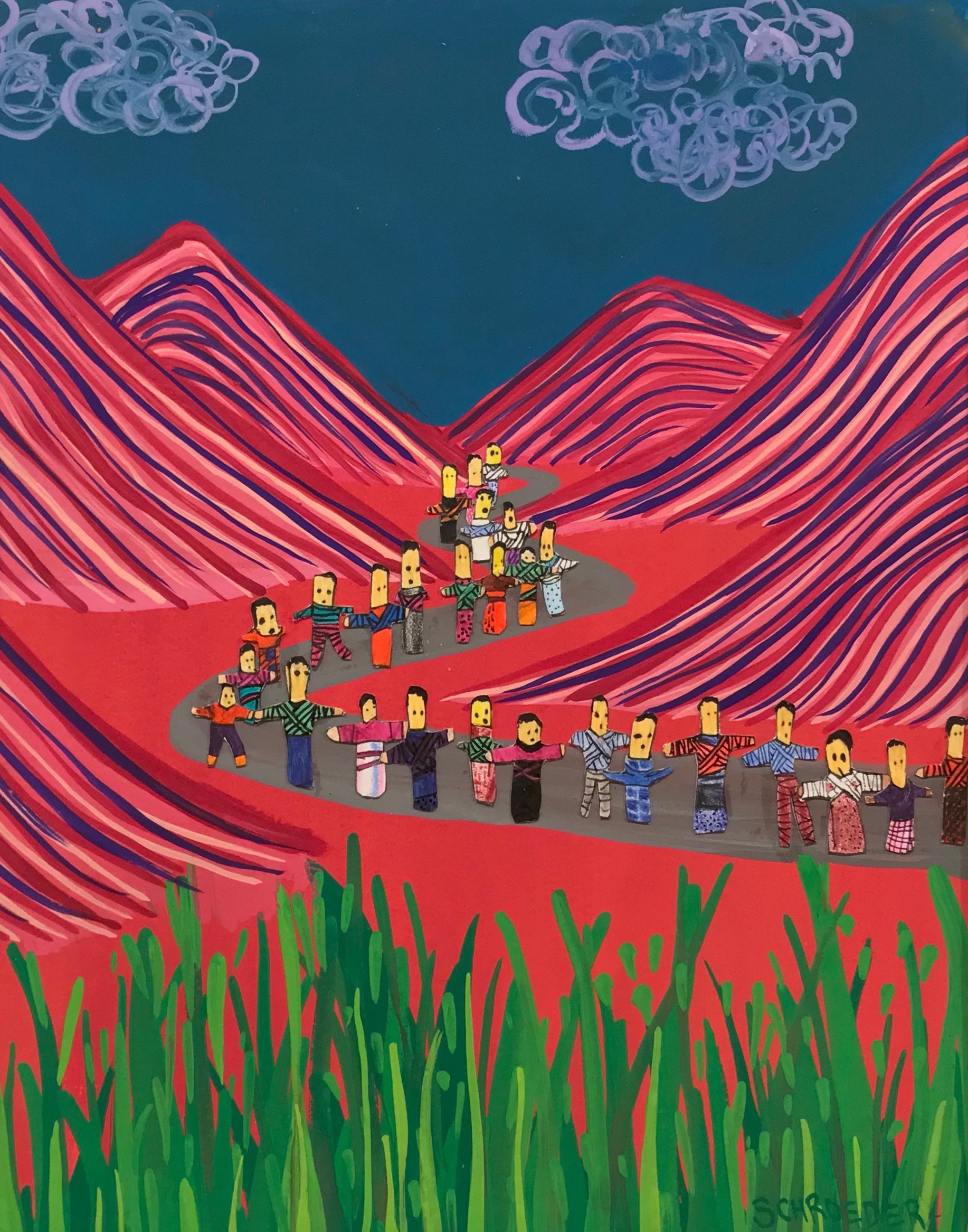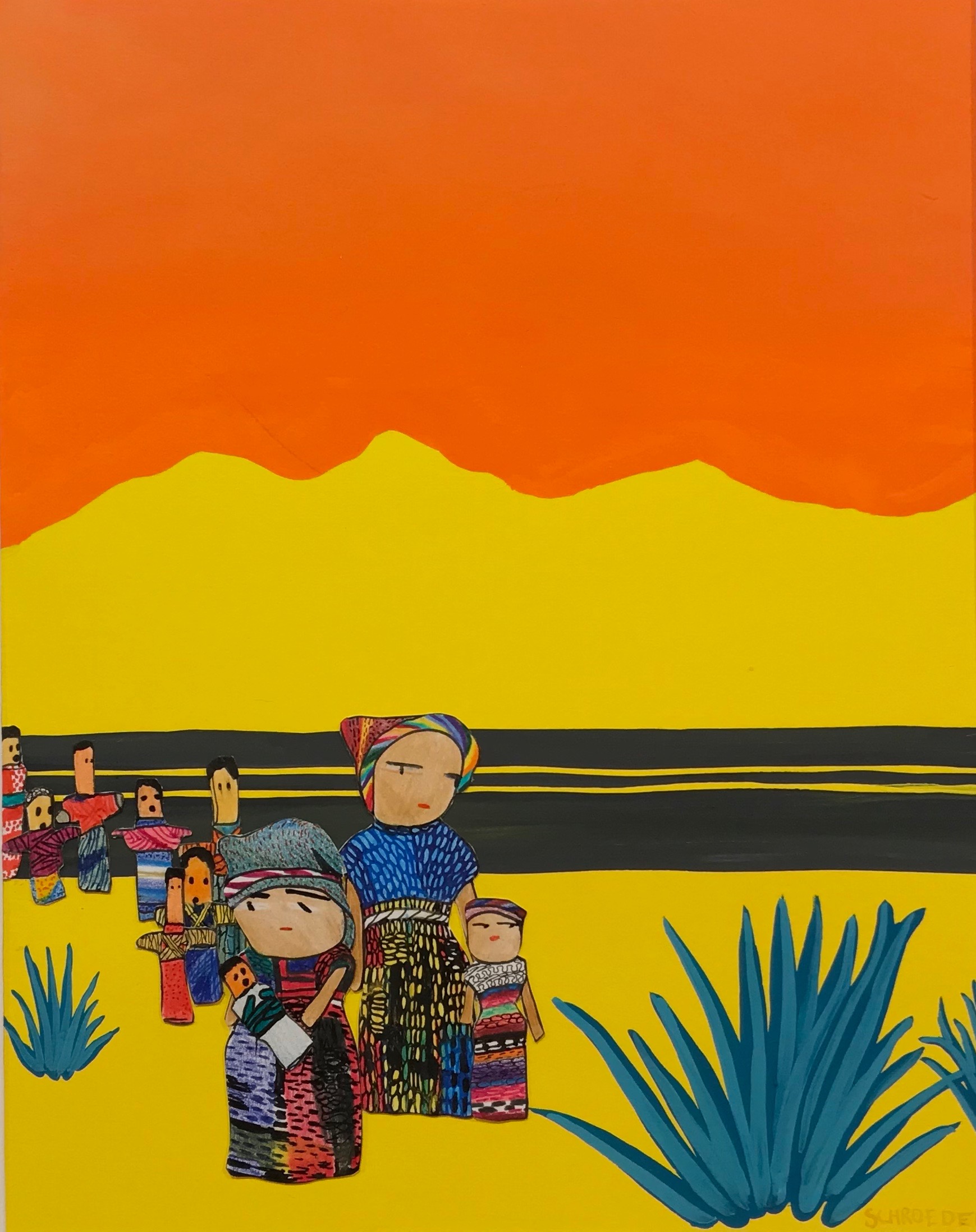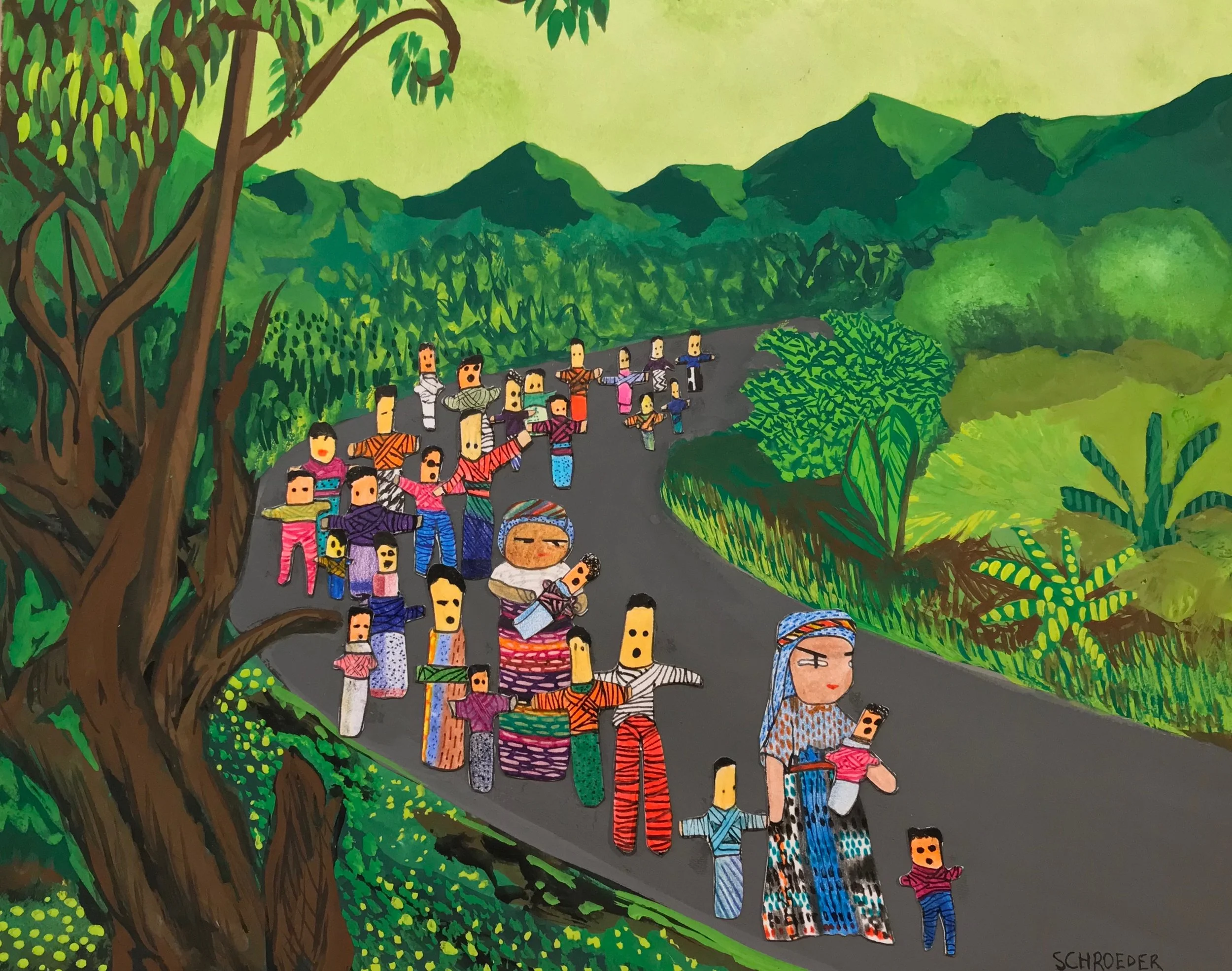
Sueño y Realidad
Alison Lee Schroeder and Gerardo Camargo
3D mixed media installation with bed, pillow, sound, paintings, and 1,657 Worry Dolls
Voice over: Bertha Alicia Ventura (El Salvador).
Trombone improvisation: Carlos A. Nieto (Honduras)
Sponsored by the Inter-American Commission of Women and the Center for Victims of Torture and the Organization of American States.
In this installation, the bed, a part of everyday life, makes reference to the basic human right of having a place to rest, not only for the body at bedtime, but for the soul, where the hope of tomorrow is born.
The bed takes on deeper meaning when connecting with a myth of Mayan origin, through the use of Guatemalan Worry Dolls. These dolls are related to a myth of the K’iche culture described in the Popol Vuh, in which the goddess Ixmucané is responsible for providing serenity and calm through her care.
The Worry Dolls symbolize hope, and come to life with the possibility of healing magic. However, the 1,657 of them present in this installation also represent the loss of that possibility, as this figure reflects the number of femicide victims in the northern triangle of Central America during the year 2017 [1].
From inside the pillow on the bed comes a mixture of audio: spoken testimonies of battered women interwoven with a melancholy trombone melody and the sound of water dropping. These sounds repeat and accumulate, echoing the perpetual tendency of domestic abuse.
Alsongside the bed, a group of paintings depicts the Worry Dolls in the role of Central American women and children who have fled this danger, making the migratory trip to the United States, in search of asylum. Landscapes are stylized in a dreamlike way representing the contradictions and ambiguities that someone who leaves their place of origin may experience, to face an uncertain reality.
Dehumanization of people who migrate is a common problem in our culture. Reduced to numbers and statistics, these people are often not spoken about or recognized as human beings. Although we are not using the specific names or faces of these people, we hope to remind others of the human experience we all share, and the presence of empathy within our capabilities.
Guatemala has a rate of 2.6 homicides against women per 100,000. In 2017, 469 femicides occurred in El Salvador, according to the Institute of Legal Medicine. Only 5 percent of the 6,326 reported crimes against women went to trial. According to the Violence Observatory of the National Autonomous University of Honduras, 388 women were murdered in 2017.
“it is our responsibility to use our talents to bring
positive change to the world”
make Sueño Realidad:
Help bring awareness to this serious issue.
If you are interested in having us install this piece in a new space, or collecting an original painting, please contact Alison here:
alisonleeschroeder@gmail.com
If you would like to collect a giclee print of one of the images:

